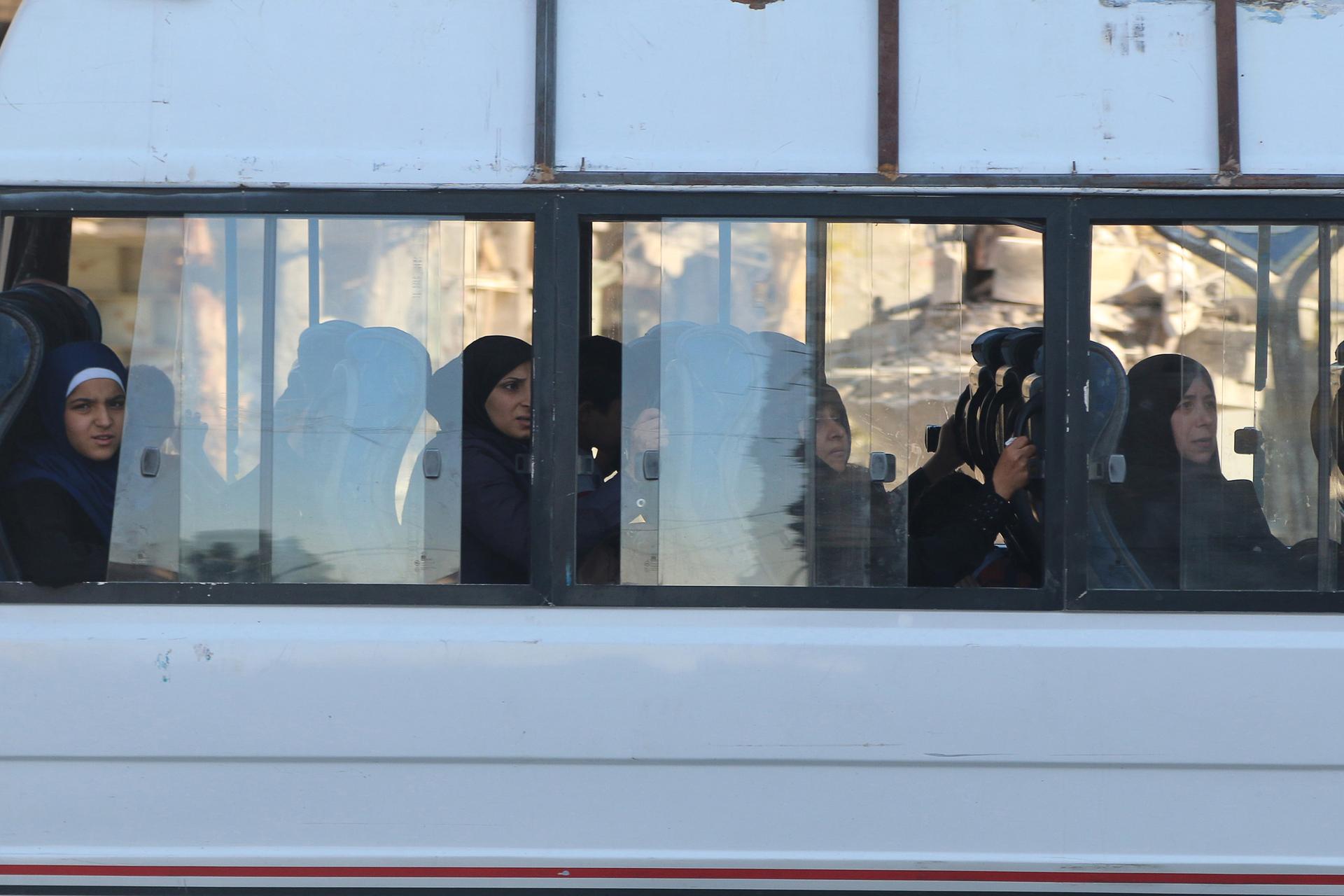You can still take the bus into Syria, even to ISIS-held areas
A bus in the city of Aleppo, Syria on July 13, 2015.
Beirut’s main bus station is a loud and dusty place on its busy days. Cars pull up right alongside the coaches and passengers are quickly shepherded along with their luggage. Drivers shout and honk their horns. Everyone moves quickly and with purpose.
But one man appears in no rush to go anywhere. Ahmad, a bus driver from Syria, has a difficult journey ahead of him.
“I am constantly in total fear and I’m horrified thinking that I just want to get home safely,” he says.
Ahmad is not his real name, and he wouldn't share his last name with us either. He has a reason to be nervous. In a few hours, he will depart from the relative safety of Beirut to one of the most dangerous places in the world: the town of Manbij, in Syria — currently held by ISIS.
Despite the civil war raging across Syria, and the daily pounding of ISIS areas by US, Russian and Syrian jets, regular bus service has continued to run to towns and cities across the country, including to ISIS-held locations.
The job is incredibly dangerous. The bus has to pass through dozens of checkpoints administered by all manner of armed groups across numerous battlefields. Ahmad, 49, makes the trip once a week.
“Once there was a bombing in front of us. A bus was hit. Once we had to drive in the dust for about 25 miles because of the bombing. We’re constantly in danger,” he says, recounting previous journeys.
It’s not just the danger of the war all around them that Ahmad and his passengers have to worry about. Due to the strict interpretation of Islamic law to which ISIS adheres, every one on the bus has to undergo something of a transformation before they reach the first ISIS checkpoint.
“The women start off wearing regular clothes in Beirut and regime areas, then cover up to the point their eyes can’t even show when we approach ISIS. And we have to pull up our pants and throw away our cigarettes. We have to take all of these precautions,” he says.
Bus services from Beirut to towns across Syria have continued throughout the civil war and the rise of ISIS. The bus to Raqqa — often referred to as the capital of the so-called Islamic State — used to be one of the biggest moneymakers for Imad, the manager of the company where Ahmad works. (Imad wouldn't share his full name for this story.)
But things are changing; hardly any buses are going any more. The recapture of Palmyra from ISIS by the Syrian army has closed the main road to Raqqa, making the journey even more arduous. A journey that would have taken Ahmad hours will now take him three days.
Even before then, drivers were becoming less willing to risk their lives on the difficult journey.
“They were just sick and tired of going through all these ISIS rules. So they just stopped going,” Imad says.
“Even after crossing the border, they have around 70 checkpoints from all sides, and at each one they have to stop and get searched. If something breaks down, then they have to stop, sleep, wait until the road is safe.”
Ahmad gets paid $30 for the trip, no matter how long it takes. For Syrians like him, opportunities for work are few and far between.
“This is the only job I can do,” Ahmad says about his work. “I can’t do anything else. What am I going to do, be a construction worker? I don’t have the build for it, so this is my only option.”
After five years of war, the refugee crisis has had a devastating impact on Lebanon. More than 1 million refugees have fled here, a significant number for a country with a population of 4 million before the war.
The influx has led the Lebanese government recently to introduce strict new rules for Syrians entering Lebanon in an effort to stem the flow. Any Syrian wishing to work in Lebanon must be able to find a Lebanese sponsor who can vouch for them, and pay a fee of $200. Ahmad says this puts many at the mercy of gangs and smugglers.
“There are these gangs who take $1,000 from Syrians who pay the $200 and keep the other $800. We’re just workers, we’re refugees, it’s unbearable.”
Despite the trouble he gets at the Lebanon-Syria border, he still prefers it to the ever-moving boundaries of ISIS-held areas.
“With ISIS, anything wrong and you’re beheaded,” he says.
